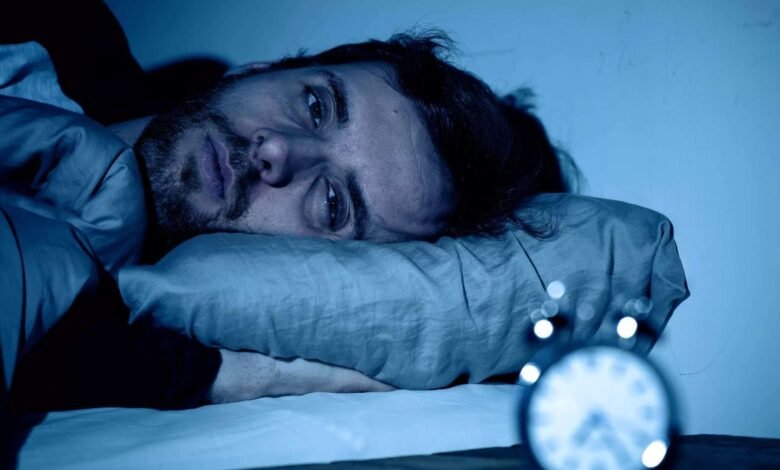Cognitive Behavioral Therapy for Treatment-Resistant Insomnia

Cognitive-behavioral therapy for insomnia is a structured program that helps identify thoughts and behaviors that cause insomnia and other sleep problems and it helps rectify those problems to promote sound sleep and is very helpful in the Treatment resistant Insomnia.
Treatment Resistant Insomnia
Insomnia when medications and all pharmacological treatments become ineffective.
Insomnia also known as difficulty in sleep, persists in most primary care patients. In patients with depression and chronic pain, the prevalence of insomnia is about 69%, while it prevails at 33% in the general population. Insomnia often becomes resistant to pharmacological treatments even after treatment of the underlying condition. Insomnia in some patients often persists after treatment of comorbid conditions and many medications are also available for the treatment of insomnia, one alternative to this medication treatment is Cognitive Behavioral Therapy for Insomnia (CBT-I).
How Cognitive therapy for Insomnia works?
Cognitive-behavioral therapy for insomnia is a non-pharmacological treatment of insomnia that involves counseling sessions with your sleep therapist. It is usually of a total of 4-8 sessions, once every week for 30 to 60 minutes.
There are three parts to the CBT-I technique
- Cognitive Part
The cognitive part of CBT-I helps diagnose the problems that cause sleep disturbances. The problems could be in daily routines, thought processes, or emotional damage
- Behavioral part
The behavioral part help rectifies the problem through behavioral modification to give sound bedtime and good sleep.
- Psychological educations
Phycological education is very important in CBT-I. it involves providing necessary information to the patient about daily routine and it focuses on the awareness of patients about the importance of good sleep, motivating them to good results.
CBT-I Techniques
There are several CBT-I techniques for treatment resistant insomnia that your sleep therapist might recommend for you depending on your needs. Here are some of the most common techniques
- Stimulus Control: In this technique, the patient cognitive restriction is performed. Cognitive restructuring implies changes in conditions that disturb normal sleep.
For Example, restriction of bedtime for only sleep is done for patients that spend too much time in bed, which leads to a tired body and disturbed sleep pattern. Setting a consistent bedtime helps develop a normal sleep pattern and sound sleep
- Lifestyle Modification: This technique is very helpful for insomnia patients with very bad eating habits and daily routines.
For example, consumption of caffeine and smoking late in the day keeps the mind awake and causes difficulty in falling asleep. Dietary modifications and meditation help relax the mind and result in better sleep. Relaxed training such as meditation is very helpful in alleviating negative thoughts and worries which is very helpful in insomnia
- Maintaining a Good sleep Environment: Use of cell phones and watching TV before bedtime increases the difficulty of falling asleep. Having a dark, cool, and quiet bedroom without TV is very essential for sound sleep in insomnia patients
- Psychological education and Biofeedback: Psychological education is a very important component of CBT-I and it involves educating patients about the necessity of good sleep. Factors such as diet, meditation, exercise, and sleep environment are made clear to a patient in this component.
Biofeedback involves monitoring body vitals such as blood pressure, breathing, and body temperature. A patient’s control over these parameters is very helpful in managing sleep disturbances.
The type of technique and number of sessions might vary depending on the patient’s need and condition as well as on your sleep therapist. The number of sessions might be as less as 2 and as many as 8. You can book yourself an appointment with your consultant or can take part in online programs.
CBT-I vs Medications for treatment resistant insomnia
Benzodiazepine and non-benzodiazepine sleep inducers are in common practice to manage insomnia. But there is a greater risk of addiction and tolerance with these medication treatments and they might become ineffective over time and it leads to treatment resistant insomnia.
Cognitive Behavioral Therapy for Insomnia is more effective with no known side effects than pharmacological treatment therefore CBT-I is superior to medication treatment in long run. Medications are only more effective for short-term treatment.
What are the Advantages and Disadvantages of CBT-I?
Advantages
- Fewer known side effects
- It focuses on factors causing insomnia rather than symptomatic treatment
- More compliance is reported as compared to hypnotic and sleep-inducing drugs
- More effective in the longer run
Disadvantages
- There might be an acute reduction in sleep time, and it might result in daytime sleepiness at the start of treatment.
- Improvement might take up to 3-4 weeks.
Conclusion
Cognitive-behavioral therapy for treatment resistant insomnia is very effective in alleviating the cause of insomnia rather than symptomatic treatment as with medication. Patient compliance and effectiveness are more prominent therefore it is now considered as an Ist line treatment strategy for insomnia and other sleep disorders.











